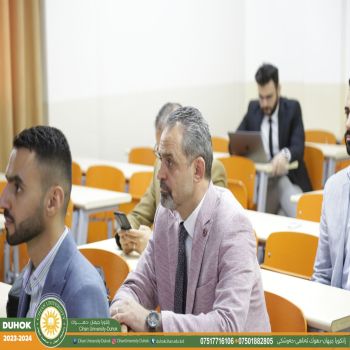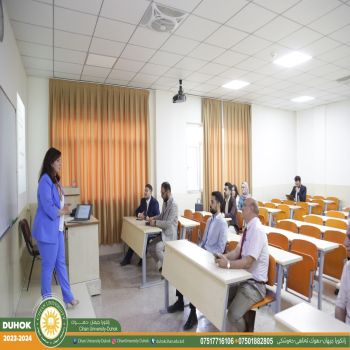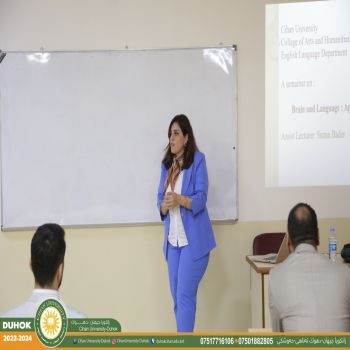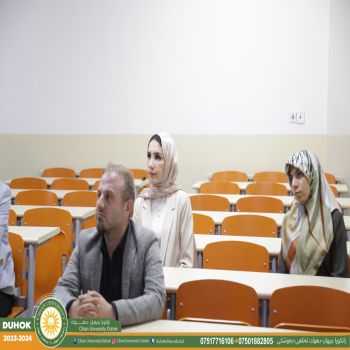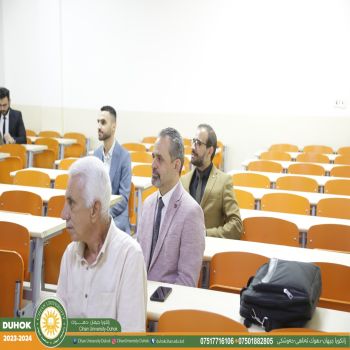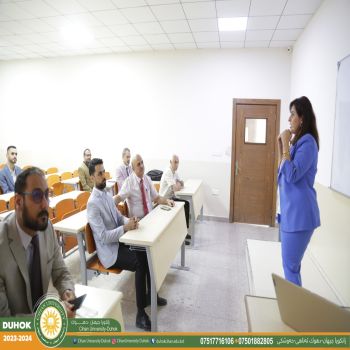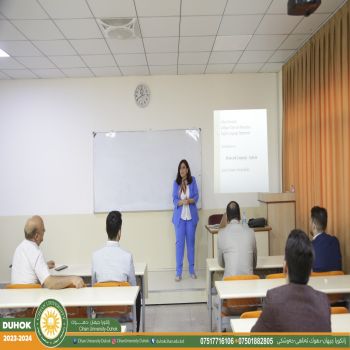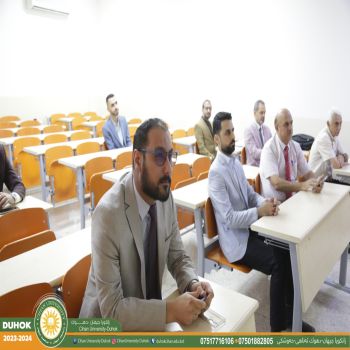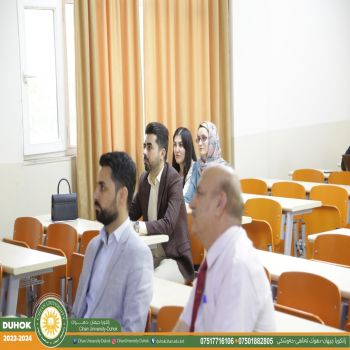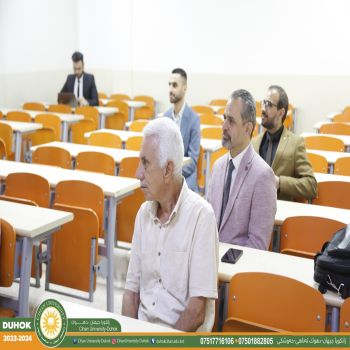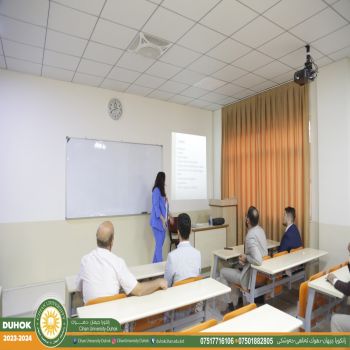A symposium entitled: Brain and language: Aphasia
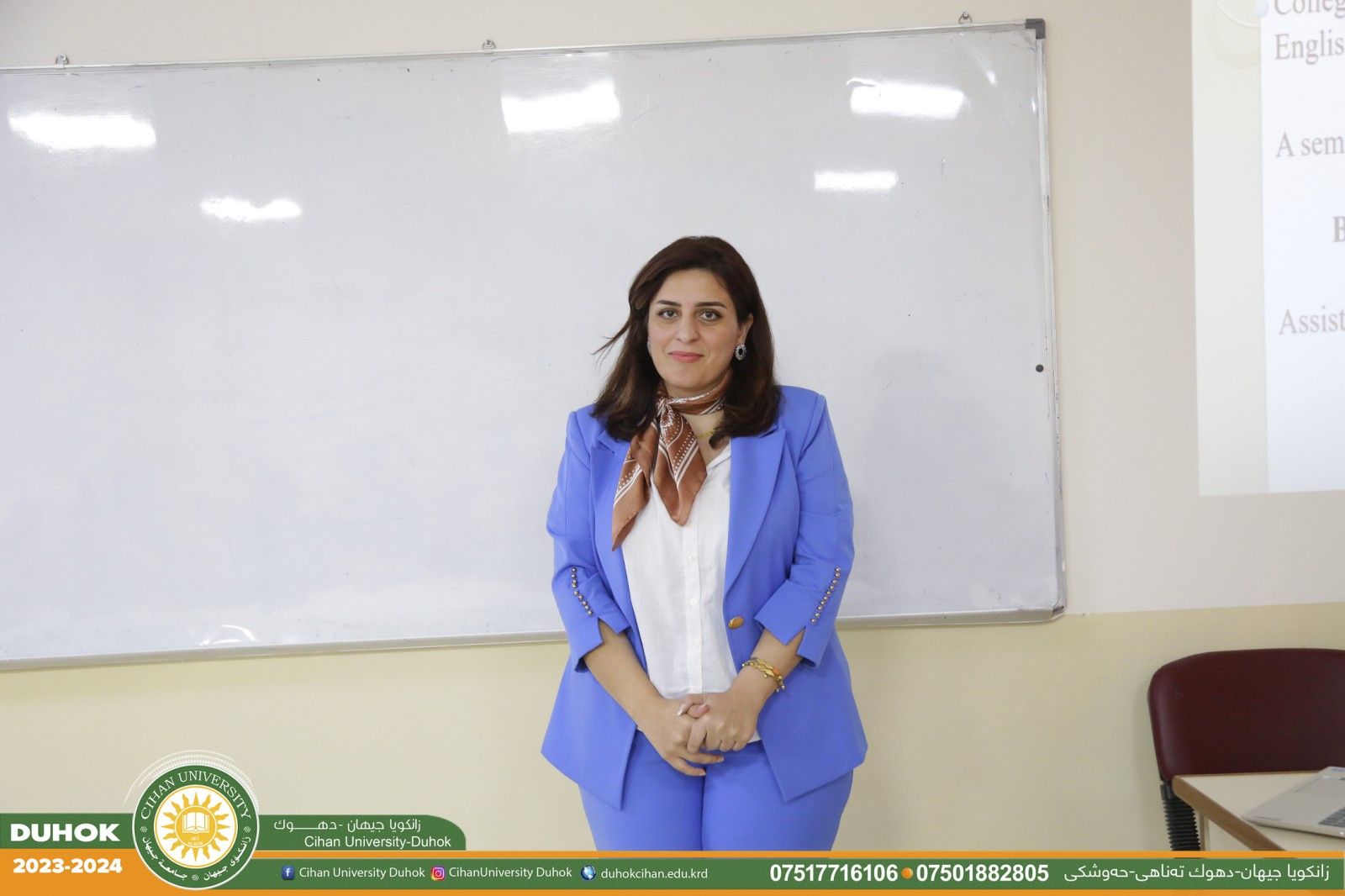
Today on (Sep 30, 2023) in the presence of the head of departments and lecturer a symposium entitled (Brain and language: Aphasia ), was presented by Assistant Lecturer (Suzan Alyousif) from the English department, Where it has been explained When you meet someone with aphasia one of the most obvious differences may be problems with their speech. Perhaps they choose the wrong word, or what they’re saying seems confused.
But this could be the tip of the iceberg. A person with aphasia normally has multiple problems with communication. Including a mixture of difficulties with speaking, understanding, reading, writing, and using numbers. According to everything that had preceded, any damage on any portion of the brain will cause real deficit that prevents language from delivering or produced word (words not thoughts). We have seen that Broca's area plays a crucial role in the articulation of speech. Wernicke's area plays a key role in language comprehension, and the area surrounding the angular gyrus plays a special role in reading. However, instead of asking WHERE IS LANGUAGE? The “WHAT IS IT? Question should be asked. a set of questions and answers were raised on this subject.

